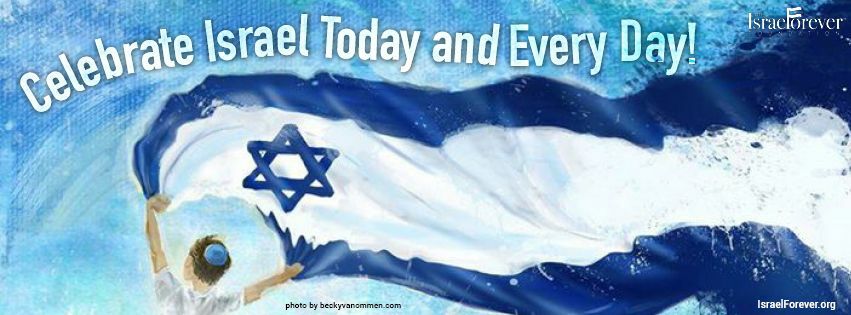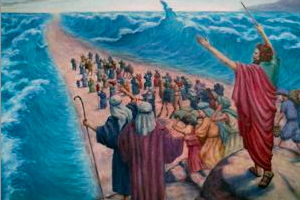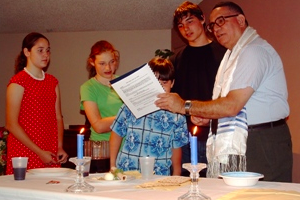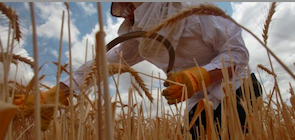Passover, Israeli Independence Day and Shavuot - The Deeper Connection
By Ken Spiro
Passover has become a holiday celebrating freedom - the Jewish people’s liberation from slavery - but there’s actually a deeper message and meaning to the holiday. God didn’t just take us out of Egypt to set us free. He put us into Egypt to form us into a nation and then He took us out in-order-to bring us to Mt. Sinai and accept the Torah.
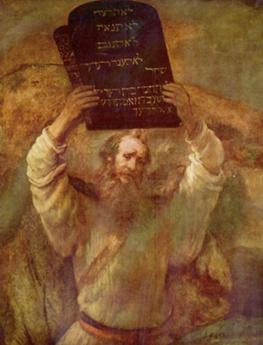
Rembrandt's "Moses Smashing the Tablets of the Law," 1659.
Passover to Shavuot (50 days later) is really one very long holiday with the final spectacular event being God’s communication with the entire nation (known as “National Revelation”) at the foot of Mt. Sinai. All of these dramatic events, including national revelation at and the receiving of the entire Torah that came afterward were also not the end of the story but rather a sort of “means to an end.”
Once the Jewish people had received the Torah, the next step was supposed to be the conquest and settlement of the land. Once the land was conquered and settled the next step should have been to create a nation that operated on a perfect system of God-given laws and values.
This nation’s ultimate mission was to be a “light to nations,” to create an ideal society which would serve as a model for the rest of humanity. The ultimate goal would be to bring all of humanity together in peace and harmony and reconnect the human race with the Creator of the Universe.
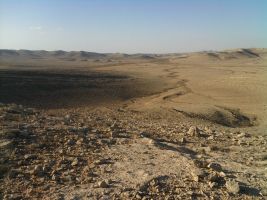
Sadly, things did not go exactly as planned. The Jewish people did enter the land but because of some very bad decisions, they were delayed by 40 years. They did eventually conquer and settle the land and even experienced periods of peace, prosperity and international influence (the 40-year reign of King Solomon being the classic example) but their failure to keep the Torah properly, maintain a good relationship with God and harmonious relationship amongst themselves resulted in their expulsion and exile (more than once!).
The final destruction and exile at the hands of the Romans in 70 C.E. proved to be exceptionally brutal and lengthy. Two thousand years later a good percentage of the Jewish people still remain in an exile (albeit quite comfortable today) caused by the Romans.
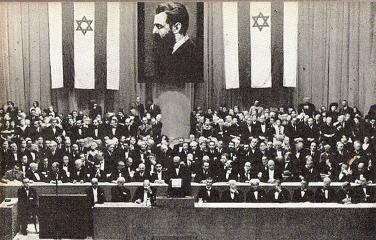
21st Zionist Congress, held in 1939 in Geneva.
During this long exile the Jewish people suffered terribly through violent persecution, expulsion and several attempted genocides, the most notable ending a mere sixty eight years ago with the destruction of 70% of the Jews of Europe during the Holocaust. Despite being exposed to the longest, most irrational, most universal violent hatred in Jewish history the Jewish people miraculously survived and not only survived but proved to be remarkably resilient, creative and productive even in the most hostile environments.
Not only did they preserve their heritage and outlast the greatest empires they also preserved their dreams of returning to their national homeland and reconstituting their state. These hopes and dreams achieved concrete form with the birth of the Zionist movement at the end of the 19th century.
This modern attempt to re-establish the nation in its ancestral homeland came from a significantly different perspective than the first entrance into the land recorded in the Book of Joshua 3,300 years ago. Largely absent from the Zionism vision was the notion of a “Light to Nations.” The vast majority of the early leadership of the Zionist movement was not observant Jews and their vision for the Jewish state, but much more along the lines of a state for the Jews with a decidedly secular bent. (This goes a long way toward explaining the Orthodox resistance to Zionism which still carries onto today among some segments of the religious community in Israel).
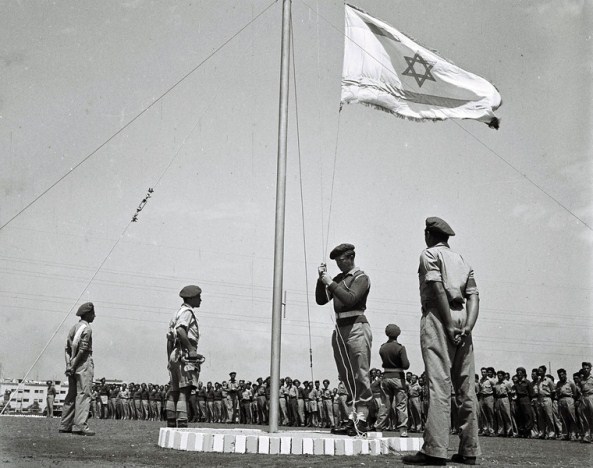
From this secular-Zionist perspective, havening suffered so much for so long at the hands of the Gentiles the Jewish people, like every other nation, deserved a state of their own which they could build with their own hands, farm, defend, live in peace and prosper. Remarkably, this is what eventually happened on May 14th 1948. Out off the ashes of the Holocaust a nation that should have long-ago vanished came alive again - The State of Israel was born.
We can now fast forward 66 years to Israel today and what we have is quite amazing. Israel has shown itself to be the miracle on the Mediterranean. The desert has bloomed, cities have sprouted from sand dunes and the amount of technology and innovation that comes out of tiny Israel is truly amazing. (For more on this be sure to watch JU’s movie “Israel Inside").
Even more impressive is the fact that all of this was done in the most dangerous and hostile neighborhood in the world - the Middle East.
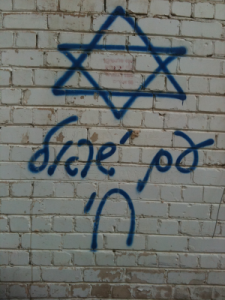
All of Israel’s amazing accomplishments were done in a constant state of warfare, terrorism and economic blockade; surrounded by hostile neighbors and with no natural resources. Since 1948 more than 25,000 Israeli soldiers have paid with their lives for the right to have a homeland. Universal military conscription and years of reserve duty are a central feature of life in Israel along with constant security checks at every public building and a perpetual threat of terrorism.
If any of our ancestors from even a hundred years ago could see the State of Israel today they would be truly amazed - It is a truly a dream come true. Yet one dream has continued to elude Israel - the dream of just being normal and living at peace like all the other Western nations. This point takes me back to where I started. Maybe we in Israel find ourselves in the state we are in because that early Zionist vision is not what we are supposed to be (Don’t get me wrong, I am a BIG Zionist but one who wears a kippah!).
Throughout history we never saw ourselves as being like others and it can certainly be said that God has always had much bigger plans for us then just being normal. I think that if we understand this point it goes a long way toward explaining the ridiculous double standard that Israel is held to by the world community and why the UN has passed more resolutions condemning Israel in the last three decades than every other nation in the world combined!!
This ridiculous double standard may reek of hypocrisy and drive us crazy but within the dark cloud of Israel bashing is a silver-lining of a message.
We were never meant to be nor will we be allowed to be like everyone else - it is simply not our destiny. Our role in history is just too critical to allow us to simply sit back and relax.
Maybe the message is that we have to finish the job that our ancestors started 3,300 years ago when they first entered the land. Maybe that’s the message hidden in the fact that Israeli Independence day falls right in the middle of the intermediate period between Passover and Shavuot - the Exodus from Egypt to receiving the Torah at Mt Sinai. It’s all part of the same story and the same destiny.
There is an Israeli children’s song with the words “the Land of Israel without Torah is like a body without a soul.” The physical rebuilding of the land has been a fantastic success and today almost half the Jews in the world live in Israel (In 1900 only .5% of the Jews in the world were in Israel). The final task is to put the soul in the body - to create a truly Jewish State that is a ”Light to Nations.” Then not only will the Jewish people and Israel finally have peace, but so too will the whole world.

Rabbi Ken Spiro is an Author as well as a Senior Lecturer and Researcher for Aish HaTorahs Discovery Seminars and the JerusalemU. In addition, he is a licensed tour guide from the Israel Ministry of Tourism. Rabbi Spiro graduated from Vassar College with a BA in Russian Language and Literature and did graduate studies at the Pushkin Institute in Moscow.
Reprinted with the author's permission - click HERE for the original blog post.

